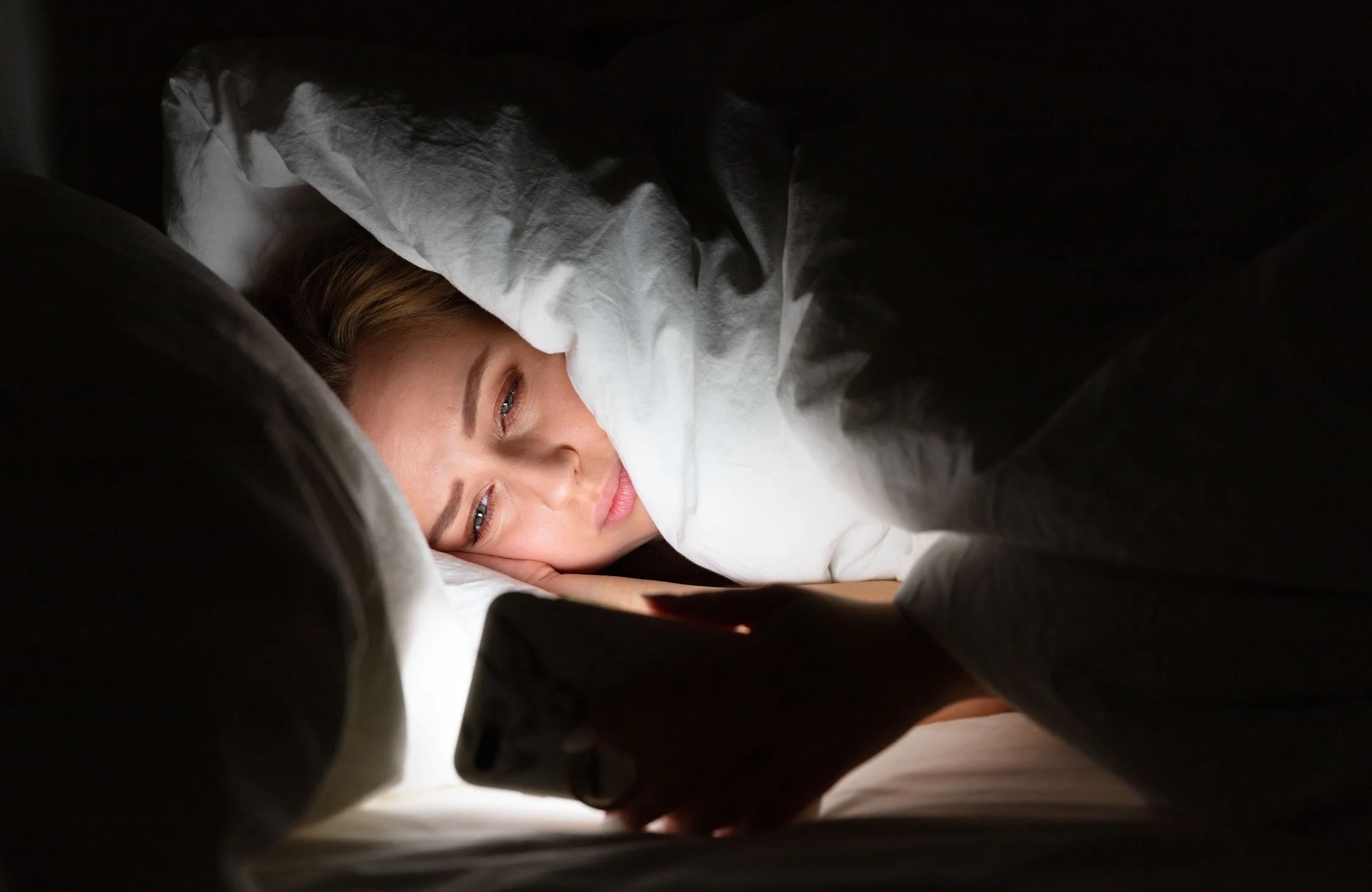How Electronics Can Impact Your Natural Sleep
Nothing can ruin your day like a bad night of sleep.
Studies are increasingly showing that artificial light emitted from electronics impacts our natural sleep cycles by limiting critical sleep hormones. In our attention economy, a bad night’s sleep can make or break your performance in social and professional settings. Not to mention, it also just feels cruddy.
Fortunately, science has made significant strides in discovering the most effective natural ways to improve our sleep cycles. And no, the answer doesn’t always have to be just reading a book before bed.
Keep reading to learn about what solutions exist to foster for natural sleep.
Electronics And Your Natural Sleep
Can’t sleep with them; can’t sleep without them.
For example, this survey of 369 university students found that nearly half experienced poor sleep, and 98.1% used an electronic device within two hours before bed every day.
As we stated above, electronics can disrupt and interrupt your restful sleep. Studies have also shown that blue light within LED and Fluorescent lights that exist in smartphones, televisions, and e-readers emit of a short-wavelength light that can increase our alertness and reduce the release of melatonin.
Melatonin is a critical hormone that promotes feelings of restfulness compared to the hormone cortisol, which makes us feel awake and alert. Without melatonin, a completely natural substance, our circadian rhythms would look completely different.
Our slow-wave and rapid-eye movement (REM) sleep cycles are critical to us waking up feeling rested. Unfortunately, a vibrating or audible notification, even if it only wakes us long enough to move our smartphone from our bed to our bedside table, can disrupt these critical sleep cycles. Even slight interruptions can have big impacts on our daily sleep habits.
However, electronics aren’t all bad. Electronics are becoming increasingly common solutions to our sleep problems – from sound machines to beds with adjustable firmness. The importance is understanding the cycles of sleep and where your sleep problems lie.
If you are looking for a sleep aid, consider using a natural, plant-powered natural sleep aid.
The Cycles of Natural Sleep
The body goes through four stages of sleep, according to sleepfoundation.org.
The first two stages involve when you first fall asleep and then when your body begins to relax. As you fall into deep sleep, your body begins to recover and grow. Lastly, when in REM Sleep, your brain activity increase and your brain begins to dream.
Updating your sleep regime and following good sleep hygiene can help you identify areas where you can improve the quality of your sleep. Consider these questions:
· Do you often have trouble falling asleep?
· Do you wake up while sleeping?
· Do you feel tired after sleeping?
If you have trouble falling asleep or staying asleep, you may consider examining your circadian rhythm for excessive electronic blue light or audio disruptions. The problem could also lie in your pre-bed ritual or the comfort of your bed.
For persistent or serious problems related to sleeplessness, speak with your doctor.
How to Assist Your Natural Sleep Cycles
The key to a natural night’s sleep is harnessing relaxation and feelings of sleepiness. Many of these tips will likely be subjective to your own perceptions, but we recommend keeping an open mind to achieve the best results.
Do Not Disturb
Turning on your smartphone’s do-not-disturb feature before bed may be a great first step to achieving a great night’s sleep. Many smartphones are increasingly developing sleep features to help people get to sleep, so explore your phone’s features to help create a better line between active time and restful time.
Warm Drinks
From warm milk to herbal teas, cozy warm drinks have been shown to calm the body down and better orient it toward rest. For this to work, we recommend avoiding caffeinated or sugary beverages. These ingredients are designed to increase our alertness, which is counter to sleep.
Consider drinks or supplements with L-Theanine, but not caffeine, to get to sleep.
Natural Sleep Supplement
Dr. Khalili’s C-10+ Deep Sleep solves three of our main problems: falling asleep, staying asleep, and getting restorative sleep. Crafted to solve his own sleep problems, Dr. Khalili created an all-natural, plant-powered formula to ensure a clean and natural night’s sleep.
White Noise or No Noise
Having a steady noise can help provide your brain something to focus on, rather than the stimulating distractions of social media, television, or music. White noise was the first on the scene, but grey, brown, pink, and more colors of noise have recently come onto the scene. In this context, the different colors represent different frequencies of sound to assist with falling asleep or relaxing. Alternatively, some search for calming noises like the sound of the ocean or no noise at all to help get to sleep.
Warm Lighting Before Bed
Avoiding blue lights can be a critical way to improve the quality of your sleep. Researchers have found that long wavelengths of light, like red, yellow, or orange light, have less impact on your ability to sleep. When searching for lights in your sleeping space, search for warm lights that will emit a lower Kelvin (K) to create more cozy and restful lighting.
Blue Light Filter
If you cannot find lower Kelvin lights, we recommend using your electronics with a blue light filter as night-time approaches. Many blue light filters come standard on e-readers and smartphones and can help you transition into a restful night’s sleep.

